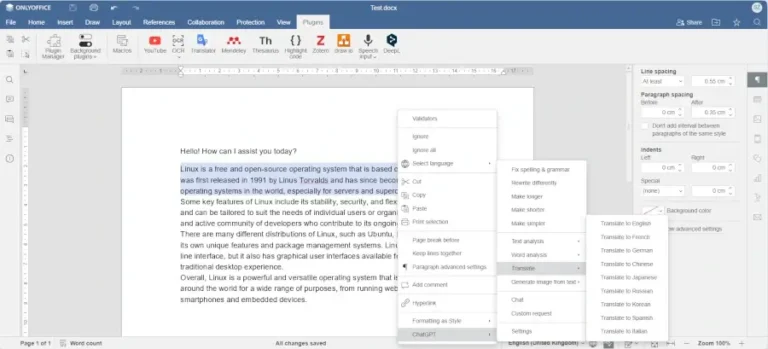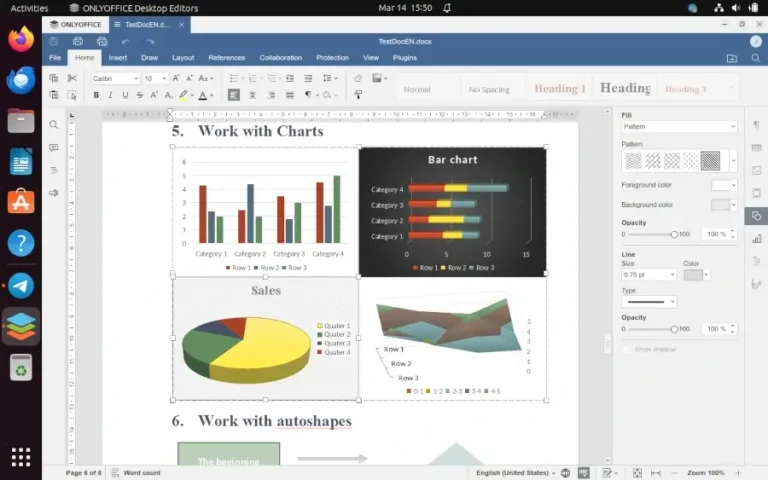Looking for a comprehensive guide to pytest, a powerful testing framework? This article gives an overview of pytest, its benefits, scope, and application. Delve into the main features of pytest, including writing small tests, scaling for complex functional testing, and documentation. Understand bugs and requests in pytest, review the changelog, and find license information. Learn more about pytest and its significance in software testing.
Key Takeaways:
Contents
Introduction to pytest
Pytest is a popular testing tool in Python that allows developers to write simple and scalable tests using assert statements and various modules.
One of the key features of pytest is its extensive support for fixtures, which are utilized to initialize test functions or share resources across tests. This helps in enhancing the reusability and clarity of test code. The wide array of plugins available in pytest can further extend its functionality based on specific testing needs, making it a versatile tool in the testing landscape. The seamless integration with unittest enables developers to easily transition existing test suites to pytest, simplifying the testing process and providing a smoother testing experience.
Overview of pytest
An overview of pytest reveals its significance as a prominent testing tool in the Python ecosystem, offering a flexible and efficient framework for test creation and execution.
Pytest stands out due to its core functionalities that simplify the test-writing process through the use of clear and concise assert statements, making tests easier to read and maintain. It leverages modules and fixtures to enhance test structure and reusability, allowing for efficient test setup and teardown procedures.
The extensibility of pytest through plugins provides users with the ability to customize and expand testing capabilities tailored to their specific requirements. The collaborative nature of the pytest community ensures a constant evolution of features and widespread support, driving continuous improvements and innovation in the testing domain.
Noteworthy is pytest’s seamless integration with unittest, enabling users to smoothly transition existing tests to pytest and benefit from its advanced features while maintaining compatibility with the unittest framework.
Benefits of using pytest
The benefits of using pytest encompass enhanced testing efficiency, improved code readability, and streamlined test maintenance for Python developers.
Pytest provides Python developers with a powerful tool to write efficient and reliable tests through its simple and intuitive syntax. By leveraging assert statements, developers can easily understand test results and pinpoint issues in their codebase. The use of modules and fixtures in pytest simplifies test maintenance by allowing for reusable setup and teardown operations across tests. These features greatly reduce the complexity of test code and make test suites more maintainable.
Pytest’s architecture promotes extensibility by enabling developers to enhance testing capabilities through the use of various plugins. This flexibility allows teams to adapt pytest to meet specific project requirements and continuously improve their testing practices. The tight-knit collaboration within the testing community around pytest fosters knowledge sharing, best practices, and support, making it a preferred choice for many Python developers.
Scope and application
The scope and application of pytest extend to a wide range of testing scenarios, from unit tests to complex functional tests, making it a versatile and comprehensive testing solution for Python projects.
Pytest’s versatility lies in its ability to accommodate various testing needs within Python projects. It enhances unit testing by simplifying test-writing using assert statements and offers flexibility in organizing tests through modules. For intricate functional tests, pytest’s fixture capabilities are invaluable, allowing setup and teardown actions for test cases.
Pytest boasts a vast array of plugins that expand its functionality, enabling users to tailor their testing environments. Its seamless integration with unittest encourages developers to transition smoothly from existing testing frameworks, ensuring a wider adoption across projects.
Main Features of pytest
Pytest boasts a robust set of features, including a flexible plugin architecture, detailed information on failing asserts, and automatic test discovery capabilities.
The flexibility of pytest’s plugin architecture allows developers to extend its functionality to suit their specific testing needs. By easily integrating additional plugins, users can enhance pytest’s capabilities in various ways, such as integrating with third-party tools or customizing test execution workflows.
The detailed information provided on failing assert statements by pytest simplifies the debugging process. This feature ensures that developers can quickly identify and rectify issues within their tests, leading to more efficient troubleshooting and problem-solving.
The auto-discovery feature of pytest streamlines the test identification process by automatically finding and executing test cases within the specified directories and modules. This eliminates the manual effort required for test setup, making the overall testing process more convenient and time-efficient.
Writing small tests
When writing small tests with pytest, developers can leverage the plugin architecture to customize testing behavior, access detailed information on failing assert statements, and benefit from auto-discovery for efficient test execution.
Pytest’s plugin architecture offers a powerful way for developers to extend and customize the testing framework to suit their specific needs. By creating custom plugins, developers can enhance the functionality of pytest by adding new features or altering the default behavior. This flexibility allows for the creation of concise tests that focus on the specific requirements of the project, ultimately leading to more targeted and efficient testing processes.
One of the key advantages of using pytest is the detailed feedback it provides when an assertion fails. This feature enables developers to quickly identify and troubleshoot issues within their code, leading to faster bug resolution and improved overall code quality. By utilizing the rich feedback on failing assert statements, developers can pinpoint the exact source of the problem and address it promptly, minimizing debugging time and streamlining the development process.
Pytest’s auto-discovery feature simplifies the process of identifying and executing tests. With auto-discovery, developers can effortlessly locate test files and functions within their project directory without the need for manual intervention. This automated test discovery mechanism saves time and effort, especially in larger codebases where managing test suites can become complex. By leveraging auto-discovery, developers can ensure that their tests are efficiently found and executed, allowing for comprehensive testing coverage and faster feedback on code changes.
Scaling for complex functional testing
Pytest excels in scaling for complex functional testing by providing a plugin architecture for customization, detailed insights into failing asserts for precise error diagnosis, and auto-discovery mechanisms for seamless integration of extensive test suites.
One of the key strengths of Pytest lies in its ability to adapt to the specific needs of different testing scenarios through its versatile plugin architecture. Testers can extend the functionality of Pytest by implementing custom plugins tailored to their requirements, offering a high level of flexibility and customization.
Moreover, Pytest stands out for its comprehensive reporting of failing assert statements, providing developers with in-depth information on what went wrong during the test execution. This detailed feedback is instrumental in quickly pinpointing the root cause of errors and facilitating efficient debugging processes.
The auto-discovery feature of Pytest streamlines the management of large test suites by automatically identifying and executing test cases without the need for explicit configuration. This simplifies the testing process, especially in projects with a considerable number of tests, enhancing productivity and maintaining test suite organization.
Documentation
The documentation for pytest offers comprehensive guidance on utilizing its plugin architecture, interpreting failing assert output, harnessing detailed error information, and optimizing test suite discovery through auto-discovery functionality.
Pytest documentation plays a crucial role in enableing users to harness the full potential of the testing framework. By diving into the intricacies of pytest’s plugin architecture, users can tailor the tool to suit their specific project requirements, enabling greater flexibility and customization.
The documentation elucidates the process of deciphering failing assert messages, providing users with invaluable insights into debugging and pinpointing issues within their test cases.
The detailed error information offered in the documentation serves as a beacon for troubleshooting, guiding users towards swift and effective issue resolution through a deeper understanding of the root causes.
The auto-discovery functionality outlined in the documentation streamlines the management of test suites by automating the detection of test files and fixtures, enhancing efficiency and organization within testing processes.
Understanding Bugs/Requests in pytest
In pytest, gaining insights into bugs and handling requests effectively involves leveraging features like the plugin architecture, compatibility with PyPy3, accessing detailed information on failing assert statements, and proactively addressing issues.
Pytest’s plugin architecture opens up a world of possibilities for customizations tailored to specific project needs. By tapping into this architecture, developers can extend the functionality of pytest through the development of custom plugins. Compatibility with PyPy3 provides a performance boost, enabling faster execution of test suites compared to traditional Python interpreters.
One of the standout features of pytest is its ability to provide detailed assert output upon a test failure. This feature significantly eases the debugging process by offering comprehensive information, helping developers swiftly identify and rectify issues within their codebase.
In terms of addressing bugs and requests promptly, proactive measures are key. By utilizing pytest’s robust infrastructure, developers can set up automated testing processes to catch potential issues early on, ensuring a smoother development workflow and quicker resolution of issues.
Changelog in pytest
The changelog in pytest provides a comprehensive record of updates, including improvements in failing assert feedback, enhanced detailed information, advancements in auto-discovery capabilities, and refinements in software testing functionalities.
These updates reflect the continuous efforts of the development team to elevate the user experience by offering more insightful feedback when tests fail. Notably, by enriching the detailed error information provided, users can pinpoint issues more efficiently, speeding up troubleshooting processes. The auto-discovery features have been fine-tuned to streamline the process of finding and running tests automatically, enhancing overall testing efficiency.
The refinements in software testing functionalities ensure that users can rely on pytest to deliver robust and reliable results. By focusing on these key areas, pytest has evolved into a versatile and user-friendly testing tool that caters to the diverse needs of software testing professionals.
License Information
Pytest is distributed under the MIT License, allowing users to access and modify the tool freely.
Under the MIT License, users have the flexibility to customize Pytest according to their requirements, making it a versatile and adaptable testing framework. This license grants users the freedom to redistribute the modified versions, fostering a collaborative and open-source community.
For those seeking additional assistance and benefits, a Tidelift Subscription offers a valuable solution. With this subscription, users can access support services, timely security updates, and a direct line of communication with Tidelift’s security contact. This direct communication channel ensures that any potential vulnerabilities in Pytest can be promptly addressed and resolved, enhancing the overall security posture of the tool.
About pytest
Pytest is a CNCF-hosted project with a strong presence in the Python community, supported by contributors from diverse locations such as Paris. The project receives backing from Tidelift and engagement through platforms like GitHub and Open Collective.
Being part of the CNCF umbrella has magnified pytest’s reach globally, allowing it to gain significant traction within the Python ecosystem. The project’s collaboration model fosters a diverse and inclusive community, attracting developers from various backgrounds to contribute and improve the testing framework. Tidelift’s support further underscores the project’s importance, ensuring its sustainability and growth. Engagement on platforms like GitHub and Open Collective not only facilitates code contributions but also encourages discussions, issue tracking, and the exchange of ideas, creating a vibrant ecosystem around pytest.
Table of Contents
The table of contents for pytest includes an array of topics such as AI integration, Wasm implementation, eBPF usage, exploration of the plugin architecture, and insights into the thriving community supporting pytest’s development.
AI integration in pytest delves into the exciting intersections of artificial intelligence and software testing, demonstrating how advanced algorithms and machine learning techniques can enhance test automation processes.
Wasm implementation explores the possibilities of using WebAssembly to optimize code execution within pytest, offering faster and more efficient performance.
By utilizing eBPF, pytest leverages the power of extended Berkeley Packet Filters to monitor and analyze network activities, ensuring robust testing capabilities.
The examination of the plugin architecture in pytest provides a comprehensive overview of how custom extensions can be seamlessly integrated, enhancing functionality and flexibility.
The active involvement of the community in pytest’s evolution showcases a collaborative environment where developers contribute ideas, updates, and enhancements to continually improve the framework.
Quick search Guide
The quick search guide for pytest enables users to swiftly navigate through the tool’s extensive features, covering diverse topics related to the plugin architecture, community resources, 223 sessions, and 15 tracks for comprehensive learning and exploration.
Pytest’s flexible plugin architecture allows users to extend its functionalities seamlessly, tailoring their testing environment to specific needs. Engaging with the community offers a platform for knowledge sharing, issue resolution, and collaboration on test automation practices.
- With an impressive range of 223 sessions, users can immerse themselves in various aspects of testing, debugging, and optimization to enhance their skills and stay updated with the latest trends. The 15 tracks provide a structured approach for users to delve into specific areas of interest, catering to beginners and advanced users alike.
Frequently Asked Questions
What is pytest?
pytest is a framework designed to make writing small tests easier, while also supporting complex functional testing for applications and libraries.
How does pytest make writing small tests easier?
pytest provides a simple and intuitive syntax for writing tests, making it easier for developers to create and maintain their testing code.
What types of tests can pytest handle?
pytest can handle a variety of tests, including unit tests, functional tests, and integration tests. It is flexible and can be adapted to fit the needs of different projects.
How does pytest support complex functional testing?
pytest offers advanced features such as fixtures, which allow for easier setup and teardown of test environments, and parametrization, which allows for testing multiple scenarios with a single test function.
Can pytest be used for both applications and libraries?
Yes, pytest is a versatile framework that can be used for testing both applications and libraries. It is widely used in the Python community, but can also be used for other languages such as Java and JavaScript.
Is pytest suitable for large projects?
Yes, pytest is designed to scale and can handle large and complex projects with ease. Its simple syntax and powerful features make it a popular choice for testing in both small and large projects.





